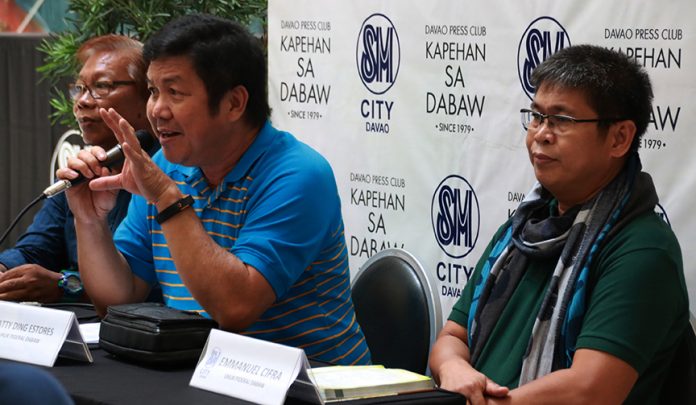
A civil society coalition has batted anew for a shift to a federal form of government to address the island’s decades-old conflict.
“If this happens, it will be good for the country, particularly in Mindanao, because we will have a bigger role in crafting the development of the island,” according to Lihuk Pederal Dabaw member Atty. Ding Estores.
Lihuk Pederal is an organization that consolidates pro-federal groups and individuals in Mindanao.
Nereneo Navarro, also a member of Lihuk Pideral Dabaw, reiterated the group’s call for Congress to pass a law that will pave the way for a change in the form of government.
It can be recalled that Lihuk Pederal has proposed that amending the Constitution should be done through a constitutional convention rather than by converting Congress into a Constituent Assembly.
“The discussion on the shift to the federal system has snowballed after the government junked a territorial deal with the Moro Islamic Liberation Front that would have created the Bangsamoro Juridical Entity,” Navarro said.
A “package of reforms” is also needed for the country’s attempt to shift to federalism to be successful, said Estores.
“It has to come along with a whole package of reforms, and that package must also include a shift to some parliamentary form of government, electoral reform and the empowerment of civil society,” Estores pointed out.
Meanwhile, Navarro mentioned that there are various types of federal governments, such as federal presidential republic (United States, Brazil, Venezuela); federal parliamentary democracy (Canada); federal parliamentary democracy under a constitutional monarchy (Belgium); federal parliamentary republic (Austria, Germany, India), among others.
“In a federal parliamentary form of government, the Parliament exercises both executive and legislative power, it implies that the strength of the Parliament would be a combination of the competence of the state’s executive and legislative branches,” Navarro said.
Emmanuel Cifra, Lihuk Pederal Dabaw member, on the other hand, said it is necessary for the Philippines to study the different models of federalism to find the right fit for the country based on the specific needs of each region.
“Distinct regions have distinct identities — regional culture, languages — and different needs,” he explained.
Cifra added that Philippine regions would be given the main responsibility for developing their local industries, public health and safety, education, transportation, and culture.
“If people don’t know about it [federalism], they will not see the benefits of it and they will not embrace it as a right kind of reform,” Cifra added.






